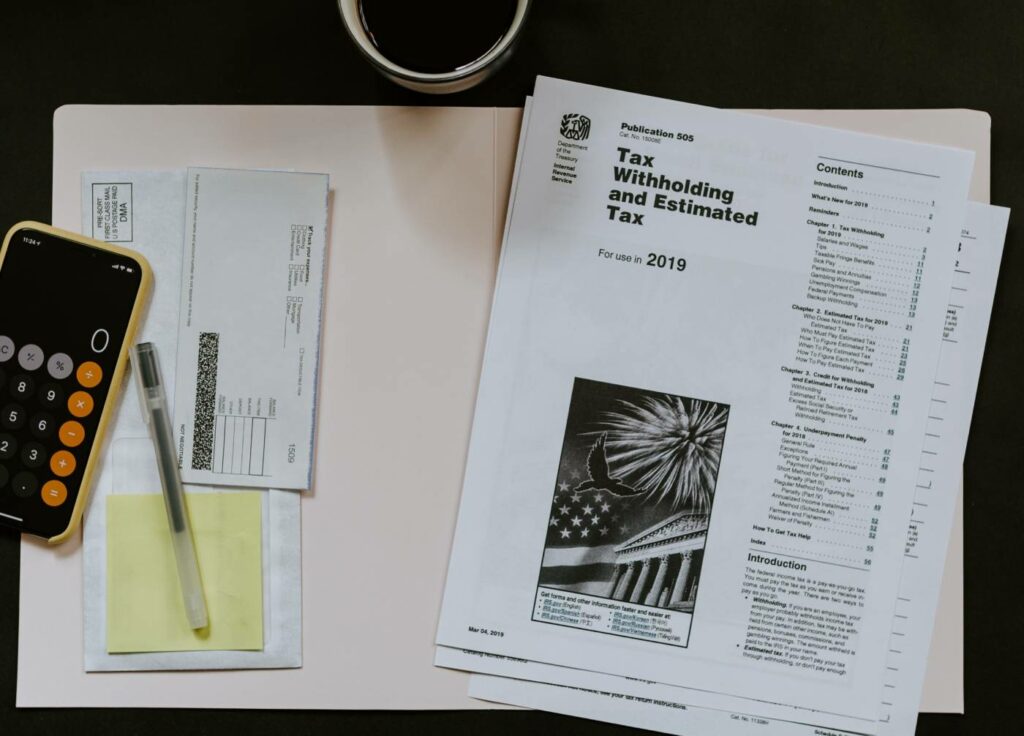Self employed visa Spain
- ⚖️ Key Points Before Applying for a Self Employment Visa in Spain
- 🌍 Legal Requirements for a Self Employed Visa Spain
- 👍 How to Start as a Self Employed or Freelance in Spain?
- 👍 What to do when you already have a autonomo visa Spain?
- 🔍 The obligation of a Self employed in Spain
- ⚖️ Advantages freelance visa Spain
- 👍 Disadvantages Spain freelance visa
- 🌍 Social Security and Covers for Self Employed Spain
- 🔥 Legal Business Structures in Spain for Self Employed
- 🎧 Self Employed Entrepreneur
- 🌟 Freelance Entrepreneurs
- 👍 FAQ about Self-Employment visa Spain
The self-employed visa Spain or freelance visa Spain is a residence permit enabling foreigners to live and work in Spain for one year. This visa not only allows the holder to reside in Spain but also permits them to include their dependents on the visa.
It’s not easy to start a business in an foreigner country. There are things such as civil responsibilities, laws, and regulations. You need to be conversant with to avoid falling into the wrong hands of the law.
If you’re considering working in Spain, this article is tailored for you. By the end, you’ll have all the essential information regarding the self-employed visa or freelance visa in Spain.
Key Points Before Applying for a Self Employment Visa in Spain
Before you apply for a self employment visa in Spain, these are the key things to remember.
- The visa applicant must apply in person
- The application submission must be done 90 days before the day of travel.
- Visa must be picked a month from the notification day. Failure to do so leads to visa cancellation.
- On visa validation, the business activities must be commenced and the registration process with the Spanish social security started.
Legal Requirements for a Self Employed Visa Spain
To obtain a self employed visa Spain or a freelance visa Spain you need to achieve the following criteria.
- Be a non-European Union (EU) citizen.
- Achieved 18 years of age.
- Absence of police criminal record. The criminal record is obtained from your previous country of residence which you spent the last 5 years.
- Appropriate business plan and qualifications required to conduct the business.
- Never been in Spain or had irregular immigration status.

Like any other country, Spain has requirements that you need to fulfill to be eligible for the self employed visa Spain. All the documents must be provided in Spanish. If your documents are in English you must have them translated to Spanish by a certified translator.
The documents and translations must be presented with the originals and photocopies.
Below is the list of requirements you need to present to qualify.
- A passport-sized photo. The passport should be stapled to the top upper part of the form.
- Visa application form and checklist. Both the original and photocopy must be presented.
- A passport with at least one blank space for the new visa with a copy of the bio page. The passport should not be more than 10 years old.
- Residence application form. You must complete and sign the EX 07 form.
- A business plan showing the business activities, expected investments, profits, and job opportunities.
- Professional qualification documents. The documents act as proof that you can start the business and run it smoothly.
- Proof of sufficient funds to conduct your business. It can be bank statements, loans, or investment contracts.
- Absence of police criminal record certificate for any person of 18 years and above. The original and the photocopy of the certificate and translation must be provided. It includes a background check verification with fingerprint comparison. Only valid for 3 months.
- A signed medical certificate of not more than 3 months since the day of issue.
- Work permit documents. For proof of the building, opening and, business operation,
- foreigner identity card to prove you are under the jurisdiction of the Spanish consulate.
- Foreigner registration document. If you’re not a US citizen and you’re applying for the self-employed visa for Spain while in the US, make sure you have all the required documents from your home country ready.
- Form 790-52 including taxes.
- Form 790-62 plus taxes.
- Signed disclaimer document.
How to Start as a Self Employed or Freelance in Spain?
Here is a step-by-step guide to getting a self employed visa in Spain.
- Determine eligibility: Ensure you meet the eligibility criteria for the self-employment visa, including being a non-European Union citizen, being at least 18 years old, having no criminal record, possessing a suitable business plan, and never having been in Spain irregularly.
- Prepare required documents: Gather all necessary documents, including a valid passport, national visa application form, visa application form, passport-sized photos, proof of sufficient funds, business plan, professional qualification documents, criminal record certificate, medical certificate, work permit documents, identity card, foreigner registration document, and any other required forms or documents.
- Translate documents: If your documents are not in Spanish, ensure they are translated by a sworn translator. Remember that some documents must be apostilled.
- Submit application: Complete the visa application form and submit it along with all required documents to the nearest Spanish embassy or consulate in your home country.
- Collect visa: If your application is approved, collect your visa from the embassy or consulate within the specified timeframe.
- Enter Spain: Upon arrival in Spain, proceed to the police station to complete any necessary immigration formalities and obtain the padron in the town.
- Receive residency card: Once your application is processed, you will receive a residency card confirming your status as a self-employed resident in Spain.

What to do when you already have a autonomo visa Spain?
1. Registration for Taxation
The tax authorities will require you to be registered as a resident taxpayer. This will require you to fill Modelo 036 and 037 forms. These forms ask you to specify your identity, residence, business plan, and business location.
2. Social Security Contributions
The next move after tax registration is to register for social security purposes. It should be done within 30 days. These payments allow you to enjoy the Spanish health care services and pension.
3. Opening a Bank Account
A bank account is required for registration with social security. The contributions are deducted directly from your bank account.
For you to open a bank account you will require proof of identification and address, NIE number, and documents showing your employment status.
4. Licenses
A license is required if your business is located to an open to public premises. You will need a license called “licencia de apertura” The license is obtained from the local town hall.
The local town authorities will carry out an inspection on you for verification purposes. You will need to pay fees and produce proof of documentation required by the town hall to run your business activities.
The obligation of a Self employed in Spain

· File quarterly tax and Value added tax(VAT) returns.
· Follow up your monthly security contributions despite direct deduction from the bank.
· Issue proper drawn-up invoices as required.
· Ensure to maintain detailed records of your business income sources and expenses, as mandated by the legal standards in Spain.
· Upfront tax retention payments on invoices from other businesses.
Deregistration as a Self Employed
After you have worked as a self-employed in Spain and want to call it quits, you have to follow a certain formal procedure. If you want to deregister you need to:
· Notify custom authority and the welfare security authorities else continued charges on your account.
· Complete Modelo 036 and 037(forms used initially in registration.) The form notifies the Agencia Tributaria that you are deregistered.
· File annual returns and VAT tax .
How to Modify an Existing Residence Visas
A residence visa in Spain can be transformed into a work visa. If you have been living in Spain for more than a year you can modify existing residence visas. However, to obtain the work visa you will have to leave and pick it from your home country.
The case is different if you have lived in Spain continuously for 3 years, because you can get the work permit while in Spain.
On completion of the modification process, you can now register and obtain a self employed visa Spain or a freelance visa Spain, and run your business.
Advantages freelance visa Spain
- Quick and easy to start and only a monthly social security contribution is required.
- You obtain some coverages such as health care, unemployment, and pension for paying the social contributions.
- It can be deregistered if you have no income coming in, hence no payment of social security contributions.
- It allows you to run your business at a low cost and with less administration.
Disadvantages Spain freelance visa
- Expensive social security contributions.
- Little pension scheme for the self employed as opposed to a situation where one is working in a normal company.
Banking for Self Employed in Spain
It may be necessary for you to open a Spanish bank account. The reason is the social security payments are normally charged directly from your bank account.
To open a Spanish bank account you need to consider the following:
- Availability of English-speaking services for English speakers
- Accessibility.
- Low banking costs.
- Bank extent of services such as insurance and pension plans.
It proves to be advantageous for several reasons such as:
- Easy payments of social security contributions.
- Easy payments of insurance.
- Appropriate record-keeping of your business enterprises.
- Issues a well-drawn-up overview of finances and invoices.
- Some banks offer extra benefits to small businesses.
However, if you don’t wish to open a Spanish bank account you can manage your finances from an overseas bank account. You can operate your account using the acceptable bank and credit cards in the country.
Tax Payment Spain with Self-Employed visa
The Spanish authority requires every self-employed person to pay value-added tax (For each bill on a client) and income tax. The tax rate varies between different regions in the country.
You are considered a tax resident in Spain if you have worked as a self-employed in Spain for more than 183 days. That is regardless of whether you reside and work in a foreign country for the rest of the year.
Self employed residents are required to file advance income tax returns of 20% quarterly and annual tax returns.
Do you want to pay low taxes in a country near Spain? We recommend you to live in Andorra.
Social Security and Covers for Self Employed Spain
Every foreigner with a legal residence permit in Spain must make payments to the social security system. The majority of self employed workers pay higher tax rates than the employed. This is due to the fixed taxation rates.
For you to receive insurance covers you must make social security contributions. This also means you must be working for you to make the contributions.
There are many benefits you get if you make social security payments. You get access to benefits such as:
· Maternity and Paternity Benefit: Self employed people and freelance workers are eligible for maternity leave starting from the day of childbirth. Maternity leave also applies from the date of fostering.
The registered applicant receives full daily wage a month before maternity leave until the end of 16 weeks.
For under 21 years you are eligible for the coverage if you have paid the contributions before the maternity leave for a certain period. The eligibility for people above 26 years only applies if you have paid the payments
for 180 days in the past years. If not so, 360 days since the day you started working.
The same also applies to a father who makes social security payments under the same cases as the mother.
In a case where the pregnancy is under workplace risk, you are eligible to 100% wage beginning from the official day of the employment contract termination.
- Access to the Health Care System: You are eligible for health care coverage hence the need for treatment registration and health card. In a situation where you don’t pay the social security contribution, you’ve been residing in Spain since April 2012 and earn below €100,000 you are eligible for health care application cover through the local INSS as a legal resident of Spain.
- Pension Provision: Pension eligibility only applies if you have been self employed and you have been paying the social security contributions for at least 15years. In which 2 years are within the 15 years and only if you have reached your retirement period.
- Work-Related Hazards or Risks: Like in a case where the workplace poses a risk to your pregnancy.
Legal Business Structures in Spain for Self Employed
Spain has legal structures that a self-employed person can choose from. A self employed person can register as the following.
Self Employed Entrepreneur
Run the daily business matters without any other person’s supervision. The entrepreneur is the sole administrator and is responsible for the business liabilities. It is fit for a small scale business that doesn’t require many employees.
You can obtain an Entrepreneur Visa but this is only for 100% technology companies.
Freelance Entrepreneurs
Is a business person who takes a job in exchange for payments and doesn’t operate as a sole trader company. If you have a freelance visa in Spain you can apply for extra work part-time. The Spanish government reduces the social security payments for people who work double duties.
Employment of Staff in Spain
For you to employ staff in Spain you need to meet certain criteria. Spain’s employment system is well regulated, hence the need to follow the Spanish employment regulations before hiring more workers.
Employees work for 40 hours a week. The salary is paid in 14 payments per year. Extra salary payment is made in July and December.
Also, each worker is entitled to a 30 day leave in a year.
Insuring Your Business in Spain
The type of business insurance to take depends on the size of your business or company, staff number, nature, and value of the business assets.
Some of the insurance that you should consider taking are:
· Personnel Insurance Policy: Suitable for a limited company for employee protection in an event of a disease or workplace hazards.
· Public Liability Insurance: For insurance against third-party claims in the event of property damage, injuries, or accidents as a result of your company negligence.
· Buildings and Contents Insurance: Covers against damages to your company or company assets loss or stock theft.
Choosing the Right Office Space for your self-employment
A shared office sitting set up is one of the most popular office arrangements in Spain. It has the advantage of promoting a sense of unity, promotes networking, and also reduces the cost of space.
Spain is a beautiful country. If you have been looking for a way to find work in Spain, don’t wait any further. Apply for a work visa Spain or a freelance visa Spain from the nearest Spanish embassy. Ensure to have all the required documents and follow all the instructions from the embassy to the latter, and you’ll be good to go.
Additionally, learn Spanish laws and your responsibilities as a resident of Spain to avoid being on the wrong side of the law.
Remember, being a Spanish speaker doesn’t mean you can’t apply for a job in Spain. There are other institutions and companies which hire and offer jobs to English speakers.
FAQ about Self-Employment visa Spain
How do I get a self-employed visa for Spain?
These are the basic requirements to obtain this visa:
- Be a non-European Union (EU) citizen.
- Achieved 18 years of age.
- Absence of police criminal record. The criminal record is obtained from your previous country of residence which you spent the last 5 years.
- Appropriate business plan and skills required to conduct the business.
- Never been in Spain or had irregular immigration status.
Can I move to Spain as self-employed?
Yes, but you will have to do all the paperwork required for the self-employment visa, we will be happy to help you.
How do I set up self employment in Spain?
We will guide you through the whole process so you can start your business in Spain. Contact us if you need help, we are always available for our clients.
Why choose us for your Self employed visa Spain?
We are a Spanish law firm with more than 15 years of experience. We are specialists in immigration and real estate. We respond in less than 3 hours to all your questions or we schedule a call to resolve all the doubts of the client.
We are experts in obtaining your visa so many clients speak well of us on the internet. If you need help with the visa, contact us!